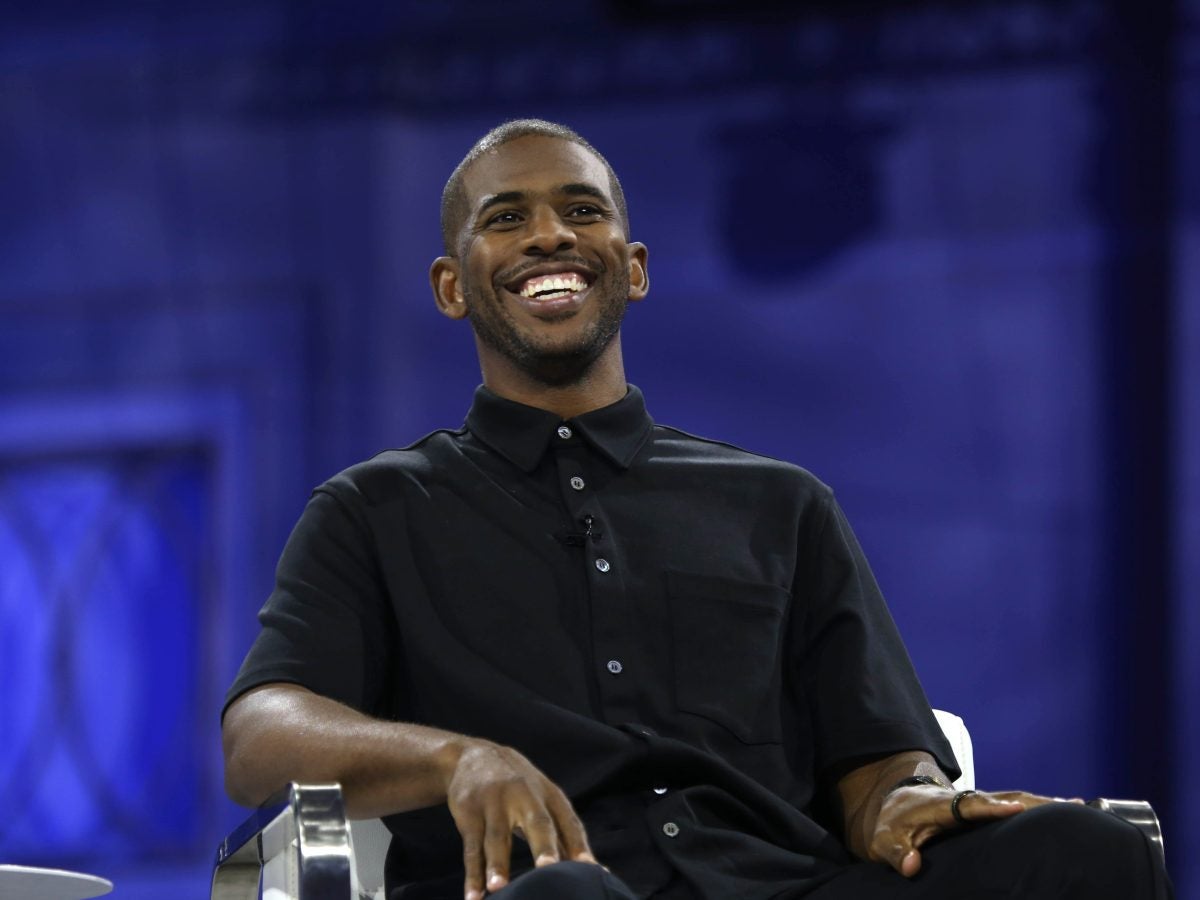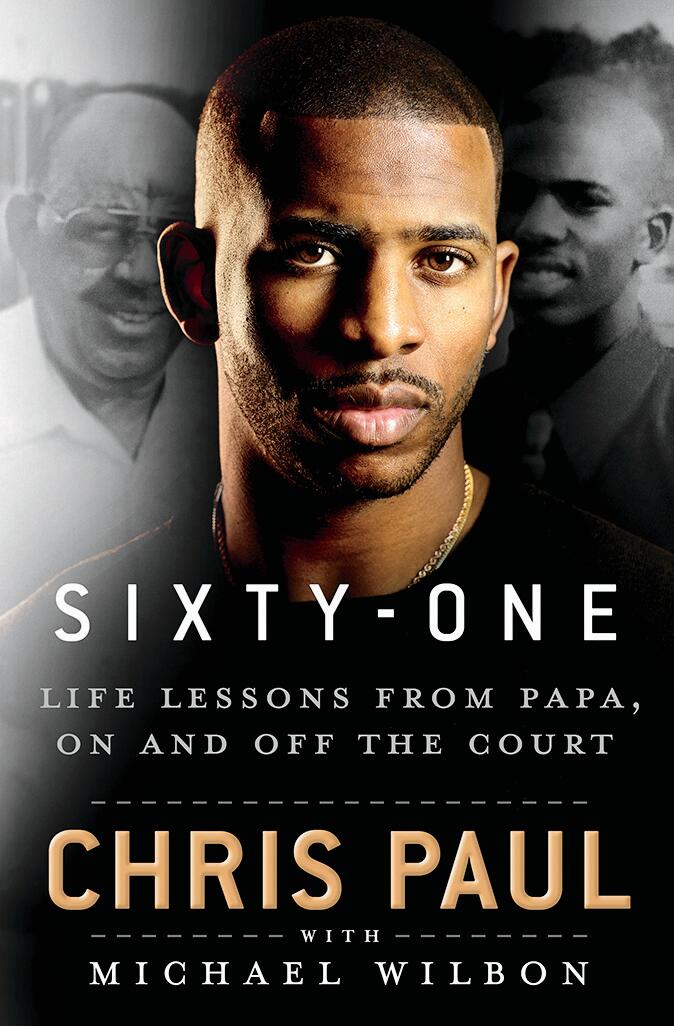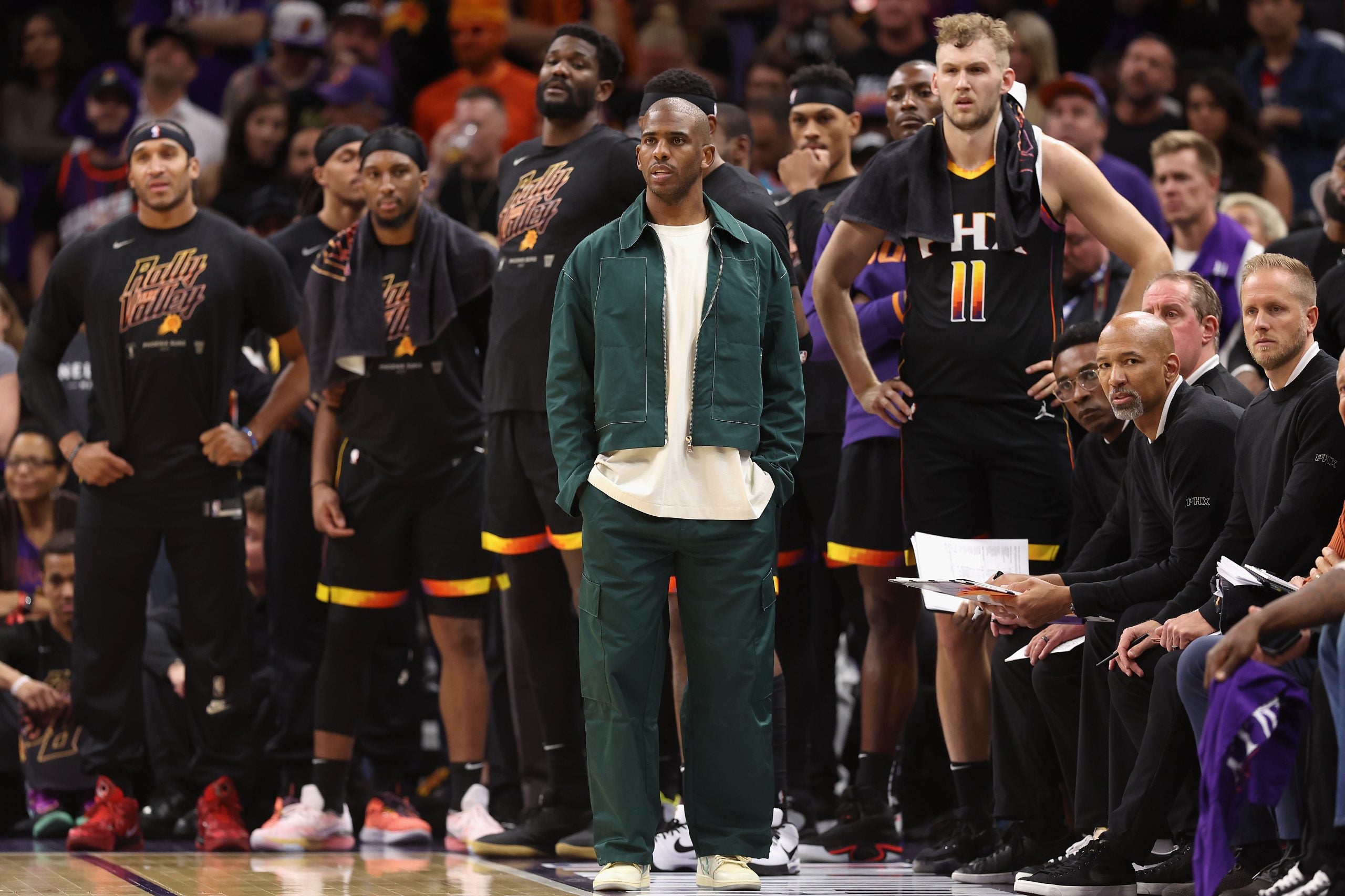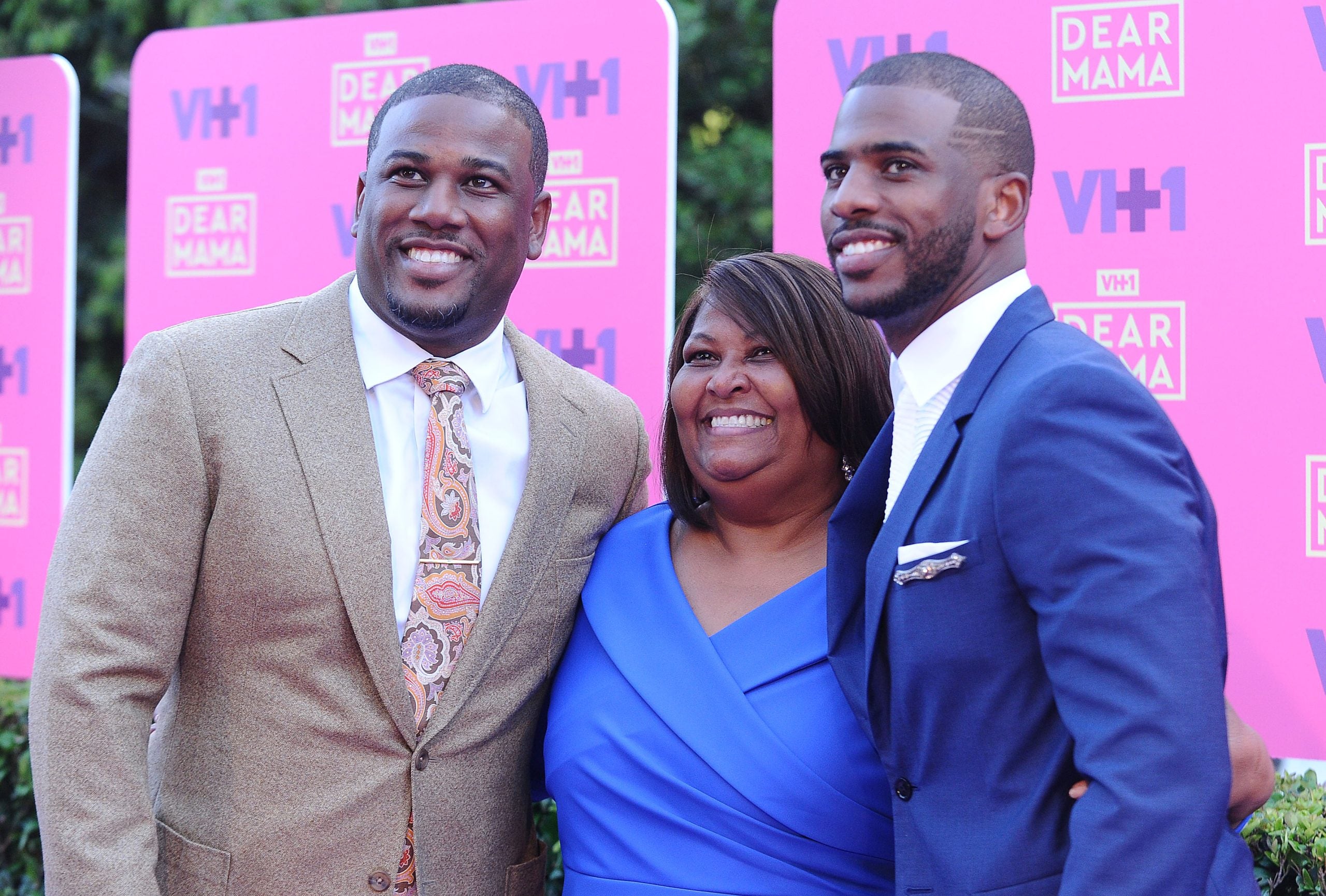
Chris Paul hates to lose more than he likes to win. For 18 seasons, fans have watched the fierce competitiveness of the NBA pro, a point guard for the Phoenix Suns, play out game after game. And in his memoir Sixty-One: Life Lessons from Papa, On and Off the Court, set for release June 20, Paul shares the personal experiences that fuel his drive.
At the center of the moving book is the relationship Paul had with his late grandfather Nathaniel “Papa Chilly” Jones, the first Black man to own a gas and service station in North Carolina. Jones, who built his business in Winston-Salem, was later mugged and assaulted—dying of a heart attack on November 15, 2002, when he was 61, as a result of injuries sustained in the attack. Five days later, Paul, then a student at West Forsyth High School, scored 61 points in a basketball game in his Papa’s honor. Now, in the new memoir, Paul shares how mentors, community, and family shaped who he is.

ESSENCE: What was your writing process like?
Chris Paul: It was an experience. You think you’re just going to tell a story—but throughout writing my book, I learned a lot about not only myself but my family. I was 17 when my grandfather was killed, and obviously, I was a totally different person than I am now. But I know that everything that has happened to me since then is a result of experiences I had growing up and the many different lessons that he taught me.
ESSENCE: When you think back to that 61-point game, what comes to mind?
PAUL: My family being there. I’m actually in the process of recording the audiobook, and I get really emotional at times. Even though it’s been 20 years and I’ve already written the book, the feelings and emotions are the same.
ESSENCE: One thing you consistently credit your grandfather for is your work ethic on behalf of family. How was that instilled in you?
PAUL: My grandfather owned his own business, and no matter what, he was at the service station every morning at 7 A.M. Seeing that work ethic and how he provided for my family, emotionally, spiritually, and financially, I now understand the importance of relationships. So many parents want to be the cool parents, but the biggest thing that I’ve learned is that while there are natural parent-child relationships, other family relationships are just as important. The relationship that my kids have with my parents, with my brother, are so important. When they say it takes a village, it really does. And I’m grateful to have had that village growing up.

ESSENCE: What does the Winston-Salem community mean to you?
PAUL: Home is always going to be home. The book was somewhat of a love letter to everybody back home, letting them know how much I appreciate them and I miss them. I’m in my 18th season in the NBA, and I wouldn’t trade it for anything. But I’d be lying if I said I didn’t miss home. When I get a chance to see the trees and smell the air, there’s nothing like it. It’s a part of me, and it always will be.
ESSENCE: When you were president of the National Basketball Player’s Association and it was decided that you would play in the NBA “bubble” in 2020, you said you asked yourself, “What would Papa do?” What are some of the other times when you asked yourself that question?
PAUL: I remember when I played in L.A. with the Clippers, almost every Christmas I would bring 50 or 60 family members out to see a game. We just did that again, for my brother’s birthday. So whenever I think about what my granddad would do, it’s always, “Keep the family close.”

ESSENCE: After someone finishes reading Sixty-One, what do you hope they understand better about you?
PAUL: I hope they understand why I’m wired the way I am. I love and am committed to my job and basketball, but that’s not who I am. That’s what I do. My family is my everything. That’s why I play, and that’s who I play for.